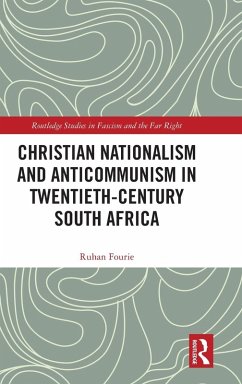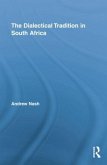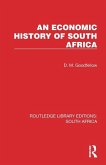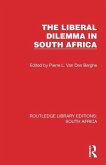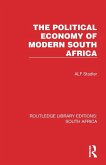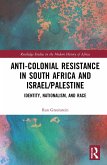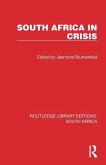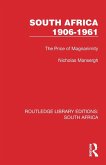This book investigates Afrikaner anticommunism in South Africa in the twentieth century, focusing on the Dutch Reformed Church (DRC).
Following contemporary understandings of anticommunism as a fluid ideological stance, it demonstrates that the deeply held anticommunist convictions of ordinary twentieth-century Afrikaners is more than merely a natural result of global politics. It examines how the DRC, the institution with the widest reach and deepest influence in the everyday lives of Afrikaners, played a significant role in perpetuating an anticommunist imagination amongst twentieth-century Afrikaners. The text explores the critical role the DRC fulfilled in legitimising overt opposition to and suppression of 'communism' in all its perceived manifestations, including black dissent, whilst also creating an Afrikaner imagination in which the volk remained convinced of the ever- present communist threat, and of its own role as a bulwark against communism. The church's moral standing in Afrikaner society also made it susceptible to right-wing opportunists gaining mainstream political clout, which this monograph also exposes and explains. It ultimately concludes that anticommunism functioned as a vehicle for nationalist unity (and uniformity), a paradigm for Afrikaner identity, and a legitimiser of the volk's perceptions of its imagined moral high ground throughout the twentieth century.
It will appeal to readers interested in anticommunism, Christian nationalism, right-wing networks, racism, and apartheid culture and society.
Hinweis: Dieser Artikel kann nur an eine deutsche Lieferadresse ausgeliefert werden.
Following contemporary understandings of anticommunism as a fluid ideological stance, it demonstrates that the deeply held anticommunist convictions of ordinary twentieth-century Afrikaners is more than merely a natural result of global politics. It examines how the DRC, the institution with the widest reach and deepest influence in the everyday lives of Afrikaners, played a significant role in perpetuating an anticommunist imagination amongst twentieth-century Afrikaners. The text explores the critical role the DRC fulfilled in legitimising overt opposition to and suppression of 'communism' in all its perceived manifestations, including black dissent, whilst also creating an Afrikaner imagination in which the volk remained convinced of the ever- present communist threat, and of its own role as a bulwark against communism. The church's moral standing in Afrikaner society also made it susceptible to right-wing opportunists gaining mainstream political clout, which this monograph also exposes and explains. It ultimately concludes that anticommunism functioned as a vehicle for nationalist unity (and uniformity), a paradigm for Afrikaner identity, and a legitimiser of the volk's perceptions of its imagined moral high ground throughout the twentieth century.
It will appeal to readers interested in anticommunism, Christian nationalism, right-wing networks, racism, and apartheid culture and society.
Hinweis: Dieser Artikel kann nur an eine deutsche Lieferadresse ausgeliefert werden.

